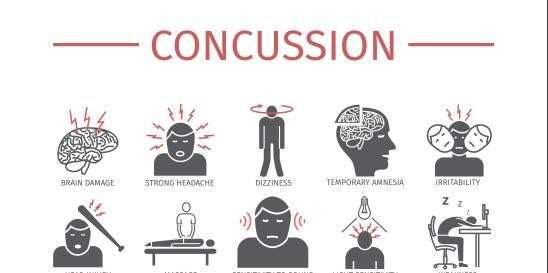A concussion is a mild form of traumatic brain injury and is usually caused by blunt force to the head. In some cases, it can result from a back-and-forth jerking of the head, resulting in the brain matter being dashed against the skull wall. It's a pretty common injury in children, individuals engaged in contact sports, and Michigan car accidents.
Most concussions are not life-threatening. However, some cases can develop complications that could significantly impact a victim's life. So, the first step in getting timely treatment is understanding its symptoms and what you ought to do after suffering an injury.
Signs and Symptoms of a Concussion
Symptoms and signs of a concussion fall into three categories: physical, cognitive, and psychological or emotional.
Physical Symptoms
Where a significant blow to the head causes a concussion, the victim could pass out for a few seconds. However, this is not always the case, so you cannot use passing out as the litmus test for concussions. Often, patients exhibit symptoms like headaches, nausea and vomiting, blurred vision, dizziness, loss of balance, slurred speech, fatigue, ringing ears, tingling in the hands, loss of taste or smell, etc.
Cognitive Symptoms
With a concussion being a brain injury, it is unsurprising that it may cause problems with brain function. In some patients, a concussion will cause problems with concentration, confusion, forgetfulness, feeling slowed down in your thinking, and trouble finding words.
Emotional Symptoms
A concussion can, in some patients, cause emotional problems, resulting in a deviation from a person's normal behavior. For example, patients may become easily irritable, report feeling foggy or "out of it," experience immense sadness, and have anxiety.
When to See a Doctor
In most cases, symptoms of a concussion will start to show immediately after an accident, in which case seeing a doctor makes absolute sense. However, concussions are among the few types of injuries that tend to have delayed onset. In some cases, it can take up to 72 hours or even more for the first signs of a concussion to show.
If you are in an accident where you have suffered a blow to the head or are violently shaken, it is always a good idea to see a doctor. You may not have to call 911 if your symptoms are not as severe, but it is best to see a doctor on the same day or within 72 hours of an accident at most.
Timely medical interventions help in several ways. It helps stop the deterioration of an injury, shortens recovery time, and provides the documentation necessary for filing a personal injury claim if you intend to seek compensation.
What to Do To Recover Damages
Once your health is taken care of, focus on evidence gathering, starting with scene documentation in pictures and video. If there were any witnesses to the incident, talk to them, record their statements, and get their contacts so you can easily trace them if you need help with your case. If it is a car accident, you will need to get the other driver's insurance and vehicle registration details.
Besides evidence, you need to prepare for the legal battle. It doesn't always have to go all the way to court, but you will still need to work with a personal injury lawyer to get the best chances at recovering fair compensation.
Personal injury lawyers bring knowledge, investigation and evidence-gathering skills, negotiation skills, and respect, which altogether help you in mitigating mistakes and increasing your chances of getting a fair outcome.




 i
i


